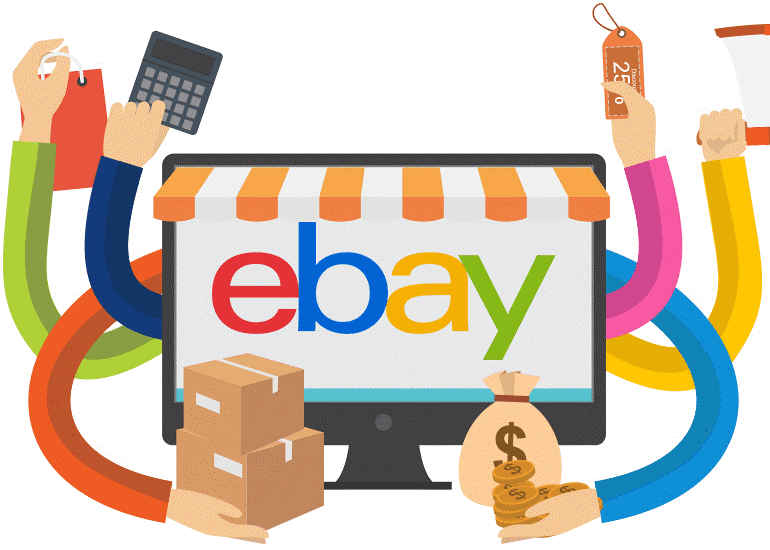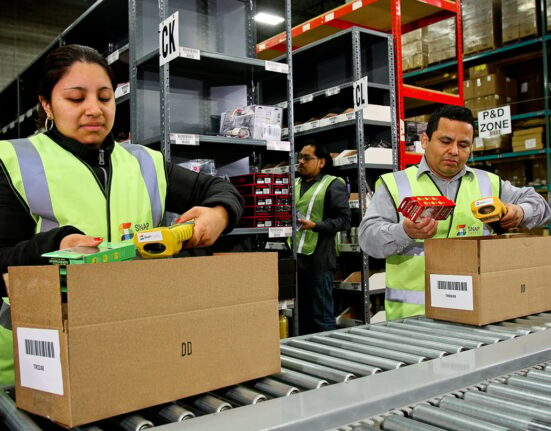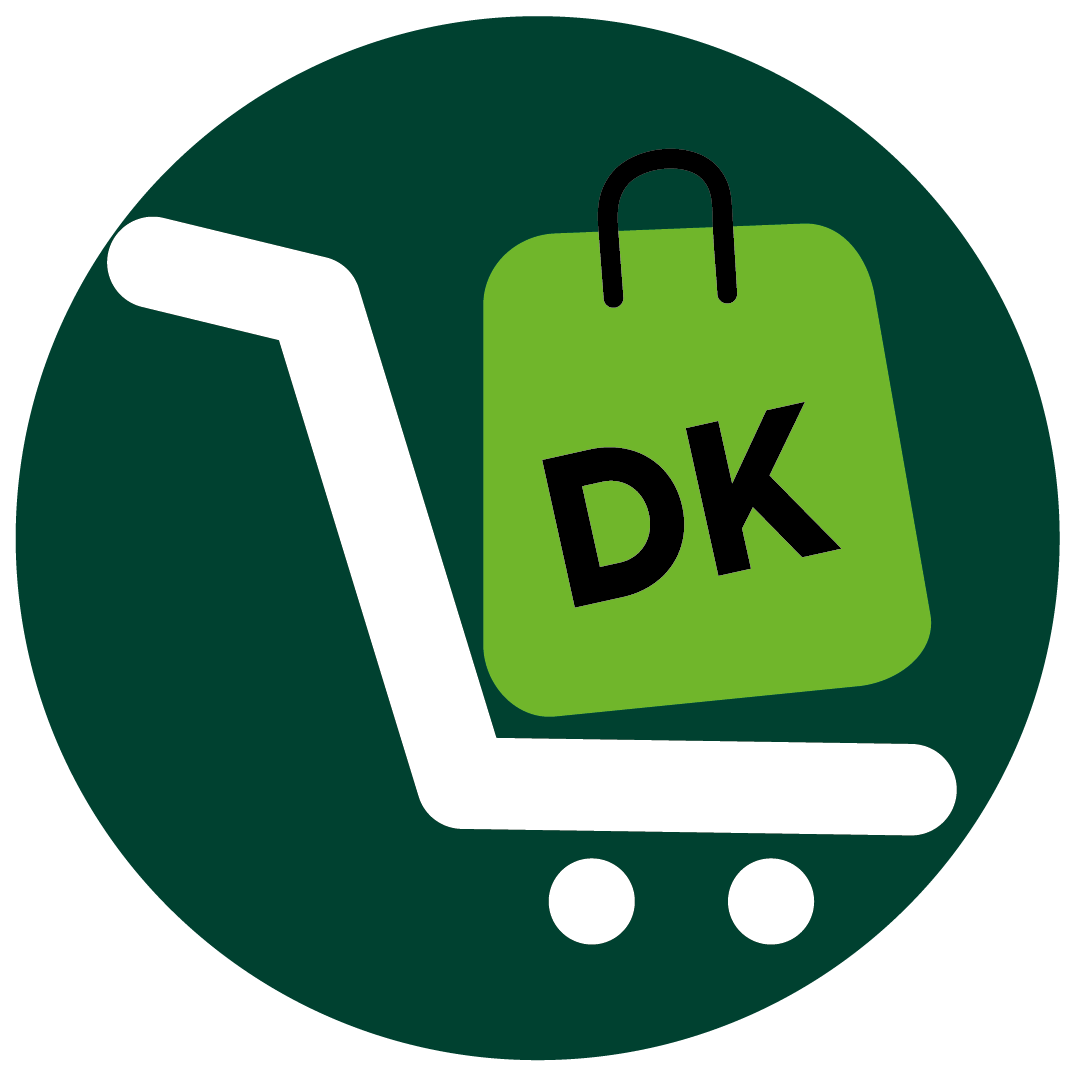eBay is an online marketplace that facilitates consumer-to-consumer and business-to-consumer sales through its website. Popular for its auction-style sales model but also offers “Buy It Now” shopping options, it provides a global reach across numerous markets worldwide. You can buy or sell a diverse array of goods and services, leaving feedback as a buyer or seller, and choosing between auctions or fixed-price listings.
Starting an eBay store can greatly enhance your online sales presence. By creating an eBay store, you benefit from increased product visibility, reaching a vast audience of potential buyers. The customizable storefront allows for a unique shopping experience, setting your brand apart from competitors. eBay’s affordable subscription plans offer cost-effective ways to boost profits, with access to advanced selling tools like promoted listings to optimize your listings and drive sales.
However, eBay is not for everyone. It may not be ideal for you if the associated fees and strict policies outweigh the benefits you get as a small-scale seller. Restrictions on certain items and a customer base seeking low prices might also limit the product’s profitability for you if you are a seller with premium or niche.
Now the point is—is starting an eBay store a waste of time or not?
To help you make a well-informed decision, read on to learn more about this product.
LET’S CUT TO THE CHASE!
NOW, LET’S DETAIL THINGS FOR YOU
WHAT’S THE CATCH WITH EBAY STORE?
WHAT YOU NEED TO KNOW.
WHAT ARE EBAY STORE’S COMPETITORS OFFERING?
WHAT AFFECTS EBAY STORE’S PRICES?
WHAT AFFECTS PRICES IN THE INDUSTRY OVERALL?
HOW TO GET THE BEST DEAL WITH EBAY STORE?
CAN YOU AFFORD EBAY STORE’S PRICES?
FINALLY: SHOULD YOU START AN EBAY STORE OR NOT?
LET’S CUT TO THE CHASE!
START IT IF
- You want access to a large customer base. eBay boasts millions of active buyers, giving you a massive potential customer base to increase visibility and sales.
- You prefer low startup costs: compared to opening a brick-and-mortar store, starting an eBay store requires minimal upfront investment, allowing you to start small and scale up gradually.
- You need flexibility in what you can sell: eBay allows you to sell a wide range of items, from new and used products to vintage or unique items, catering to different markets.
- You seek global reach: with eBay’s global marketplace, you can reach buyers from around the world, expanding your customer base beyond local boundaries.
- You value easy setup and management: eBay provides tools, templates, and guidance to help beginners create attractive listings and efficiently manage their stores.
- You seek additional selling tools and features: eBay offers various tools such as promotional features and analytics to enhance your store’s performance and reach.
- You have an interest in the opportunity for growth: starting small on eBay allows for gradual expansion as you gain experience and reputation, potentially growing into a more substantial online business.
- You aim to build your brand: consistently selling on eBay can help establish your reputation as a reliable seller, building trust through positive customer feedback.
- You want to do low-risk testing: use eBay to test products or markets with low risk. List a few items to gauge demand and adjust your strategy accordingly.
>>> MORE : How to Create an eBay Store
DON’T START IF
- You are not ready for competition: eBay’s crowded platform makes it challenging to stand out. If you’re not ready to invest time in optimizing listings and marketing, it might not be the best fit.
- You have concerns about fees: while creating a basic eBay account is free, there are fees for listing and selling items. eBay also takes a percentage of your sales, which might impact your profitability.
- You are not willing to adapt to policy changes: eBay frequently updates its policies, which can affect sellers. If staying informed and adapting to changes isn’t appealing, it might not be the right platform.
- You are not ready for customer service demands: dealing with customer inquiries, returns, and issues can be time-consuming and requires patience and dedication.
- You are not comfortable with platform dependency: your business will depend on eBay’s platform and policies. If they change in a way that doesn’t benefit you, it could impact your business negatively.
- You don’t have an interest in dealing with global customers: while eBay offers a global marketplace, this means dealing with international customers, shipping, and potential language barriers.
- You are not ready to invest time in research. Success on eBay often requires research into your market, competition, and pricing strategies. If you’re not prepared to do this, it might not be the right choice.
- You are not committed to providing excellent customer service: building a positive reputation on eBay requires excellent customer service. If this isn’t a priority, it could impact your seller ratings.
- You don’t have an interest in managing inventory and shipping: selling on eBay involves managing inventory levels and shipping items promptly. If this aspect doesn’t appeal to you, it might not be the right platform.
- You are not ready for a potential slow start: like any business, success on eBay takes time and effort. If you’re expecting immediate results or quick profits, you might be disappointed.
THE BOTTOM LINE
eBay is a dynamic marketplace offering buyers and sellers a platform for diverse products, secure transactions, global reach, and tools for successful online selling. An eBay Store offers a comprehensive e-commerce solution that enhances product visibility, attracts more buyers, and provides a customizable storefront to create a unique brand presence.
It’s a cost-effective option with various subscription plans, allowing you to choose one that best fits your budget and business size. You also benefit from advanced selling and marketing tools, such as promoted listings, which help optimize listings and boost sales.
Additionally, an eBay Store streamlines the selling process by providing one spot for all products. This allows for better inventory and promotion management, which in turn increases sales and keeps customers coming back.
NOW, LET’S DETAIL THINGS FOR YOU.

Selling on eBay is cheaper than on many other sites, and shop subscribers get discounts. You may also pick between shop memberships that give different degrees of service at different costs and fixed-price and auction-style listings, giving you flexibility in selling your things.
However, does it offer more value than others? The truth is Amazon has a wider array of products, with new items and built-in algorithms, but its fees are higher than eBays, and its competition among sellers is more intense due to its large customer base. Etsy seems to perform better in uniqueness and creativity but its fee structure and customer demography is not like eBay. Facebook Marketplace, like eBay, is free and provides a wide choice of items, but its transactions are local and in-person. Craigslist is also free, but it lacks eBay’s auction capabilities and global reach.
The point is—eBay is not the cheapest, neither does have the highest product offering!
So, what makes eBay stand out for you as a seller in its value offering? It has a big advantage if you need a global reach and the flexibility of auction and fixed-price listings.
What if that’s not what you need—then check out other platforms doing better for niche products, local sales, or creating a brand-specific online store.
WHAT’S THE CATCH WITH EBAY STORE?
If you’re considering an eBay store, it’s important to weigh potential drawbacks. The fee structure on eBay can be intricate, and if your sales are modest or you have a limited number of items to sell, the costs might not justify the investment. Keep an eye out for unexpected additional costs such as shop subscription fees, final value fees, and insertion fees. This might demotivate you as a seller.
Be aware that as a new seller, you will face restrictions on the number of items you can list and sell. This can impact your company’s growth negatively. The platform’s strict rules and potential fines for certain listings could pose challenges to your business operations.
Moreover, the competitive environment on eBay could lead to others mimicking your product listings, diluting your brand’s uniqueness. If your merchandise falls under eBay’s list of banned items, you won’t have the option to sell them there. And if your products are high-end or specialized, eBay’s bargain-seeking audience may not align with your pricing strategy, affecting your profit margins.
You need to know this too—sellers are responsible for understanding and complying with international shipping regulations, and customs procedures, and handling lost or late deliveries. This is daunting, but you need to prepare your mind for it.
WHAT YOU NEED TO KNOW

Here’s to reiterate the cost you need to prepare to bear on eBay and what it delivers to you.
eBay’s pricing and subscription plans are straightforward, with clear distinctions between the different levels of store subscriptions. Each subscription tier offers a specific number of free listings per month and a set fee for additional listings. The plans range from the Starter Store for casual sellers to the Enterprise Store for large-scale businesses, with fees that reflect the level of service provided. eBay aims to make it easy for you as a seller to understand what you’re getting with each subscription, including the benefits like lower final value fees and access to advanced selling tools. However, you may find the fee structure complex due to additional charges like insertion fees and final value fees, which vary depending on factors such as item price, category, and listing format
Checkout its subscription plans and prices:
- The Starter Store is the most affordable option at $4.95/month with an annual plan, providing 250 free listings each month and a 30¢ fee for additional ones.
- Alternatively, explore the Basic Store, which costs $21.95/month annually, with 1,000 free fixed-price and 250 auction listings monthly, plus a 25¢ fee for extras.
- For larger inventories, consider the Premium Store at $59.95/month annually includes 10,000 free fixed-price and 500 auction listings, with additional listings at 10¢ and 15¢ respectively.
- Or are you a high-volume seller? Then opt for the Anchor Store at $299.95/month annually, which offers 25,000 free fixed-price and 1,000 auction listings, with a 5¢ fee for more.
- Next is the top-tier Enterprise Store. The price? $2,999.95/month for an annual commitment, including 100,000 free fixed-price and 2,500 auction listings, with the same 5¢ fee for additional listings as the Anchor Store.
One good thing is that all plans come with perks like reduced final value fees and tools for business growth. So you just simply subscribe to any of the plans that match your needs
>>> PRO TIPS : How to Start an eBay Store Without Inventory
WHAT ARE EBAY STORE’S COMPETITORS OFFERING?
eBay’s has a wide range of competitors offering a variety of features that cater to different seller needs. Here’s a summary of what some of the top alternatives provide:
eBay vs Amazon
Amazon and eBay are e-commerce giants with different selling strategies. As an auction house and marketplace for new and used things, eBay offers auction-style and fixed-price listings for sellers. Dynamic pricing and larger earnings for unique goods are possible. However, Amazon operates more like a typical shop, emphasizing new items, a consistent buying experience, and customer care and fulfilment, frequently through Fulfilment by Amazon (FBA).
You will find it easier to start selling on eBay because to its flexibility and minimal startup costs, but Amazon’s wide assortment and broader client base can boost sales. Amazon has greater fees and more seller rivalry. eBay vendors profit from its international reach and auction structure, while Amazon sellers gain from its logistical network and consumer confidence.
eBay vs Wix
eBay and Wix serve online retailers, but they have distinct perks. eBay links vendors with an enormous buyer base worldwide. Auction-style and fixed-price sales provide vendors many opportunities to contact buyers. Since eBay charges by listings and sales, sellers with high quantities may benefit..
Wix, however, lets merchants develop bespoke online stores. Here, vendors have full control over their site’s design and client experience. The monthly price for Wix allows retailers to create a unique brand presence. This might benefit merchants who wish to stand out and can boost visitors to their site. Selling on an existing marketplace may be preferable on eBay, but Wix is best for a more personalized web business.
eBay vs Shopify
eBay and Shopify suit various seller demands and preferences. Sellers can list and sell products rapidly on eBay since it has a large client base. Auction-style ads may be fun for selling unique products. However, eBay fees for listings and sales can mount up, especially for sellers with several transactions.
In comparison, Shopify is an e-commerce platform that lets merchants create branded online businesses. It gives merchants more control over their store’s appearance and feel with customizable templates and features. Shopify requires a monthly fee but offers store administration, marketing, and analytics services. This makes Shopify a preferable option for you if you want a separate website and are willing to market to increase visitors.
Since eBay is good for rapid starts and broad visibility, Shopify is better for merchants that want to create a brand and have more control. The seller’s goals, resources, and dedication to online selling will determine eBay or Shopify.
eBay vs Etsy
eBay and Etsy are major online marketplaces with different audiences. eBay is famous for its auction-style postings and lets you sell practically anything, from new to used. This uniform strategy makes eBay acceptable for merchants, wholesalers, and second-hand sellers. The specialized marketplace Etsy sells handcrafted, vintage, and unusual things, attracting shoppers searching for unique and creative stuff. Etsy caters to content producers and artists with a more personalized and craft-focused buying experience.
Etsy is a smaller, more specialized client base with a specific persona than eBay, which offers a wide range of selling tools including seller protection and product marketing. Your product kind and target audience will determine whether you choose eBay or Etsy. Etsy may be perfect for creative materials, handcrafted things, and vintage stuff. If you want a more global platform with the ability to sell a variety of things and organize auctions, eBay may be preferable.
WHAT AFFECTS EBAY STORE PRICES?
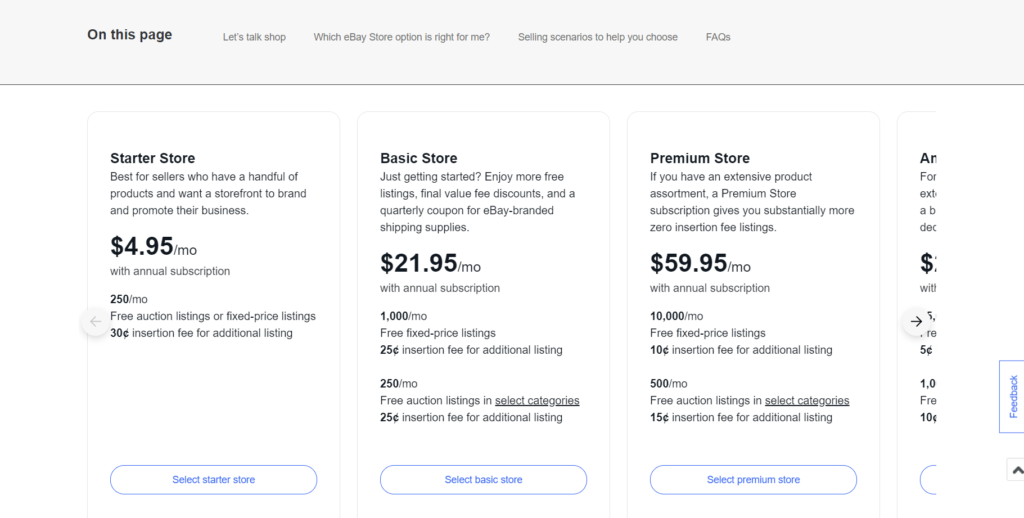
There are a combination of factors that affect eBay’s pricing. Your knowledge of this helps you to navigate the process of starting an eBay store without a hitch or unnecessary surprises.
eBay Selling Fees
This includes insertion fees for listing an item and final value fees upon sale, which are primary considerations that can vary depending on how many items you list and their final sale prices.
Product Category and the Seller’s Reputation
The type of product being sold and the seller’s reputation on eBay can impact pricing strategies; well-regarded sellers may be able to set higher prices due to buyer trust.
Market Competition
Competition in the marketplace also plays a role in pricing. Sellers must be aware of the prices set by others offering similar items to remain competitive.
Buyer Perceptions
Buyer perceptions are crucial as well; the initial price point can shape how buyers view the value and quality of an item, influencing their decision to purchase.
Promotions and Shipping
Any promotions or shipping costs associated with the item can lead sellers to adjust their prices to cover these expenses or attract buyers with deals. Understanding these dynamics is key to successful pricing on eBay.
WHAT AFFECTS PRICES IN THE INDUSTRY OVERALL?
Many things shape the prices in the e-commerce industry such as a blend of costs, market conditions, consumer preferences, and external factors. The cost to produce, store, and ship products, along with taxes and operational expenses, sets the baseline for pricing. Market dynamics, such as competition and supply-demand balance, compel businesses to adjust prices strategically. Consumer behavior, influenced by perceived value and price sensitivity, also plays a crucial role.
Additionally, broader economic conditions, technological advancements, and regulatory changes can necessitate price adjustments. E-commerce platforms often employ dynamic pricing models, adjusting prices in real-time based on various algorithms. Also, strategic pricing models like cost-based, value-based, and bundle pricing are used to attract different customer segments and achieve business objectives. Altogether, these elements interact to determine the final price presented to the consumer in the e-commerce marketplace.
>>> GET SMARTER : How to Start an eBay Dropshipping Business
HOW TO GET THE BEST DEAL WITH EBAY STORE?
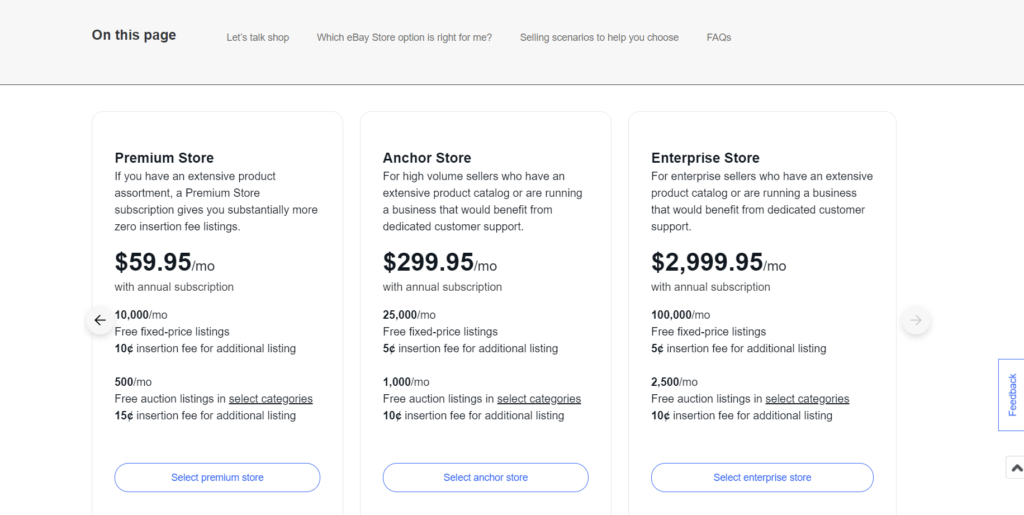
Bid Strategically
When participating in auctions, timing is crucial. By waiting until the auction is about to close, you can place your bid and potentially win the item without driving the price up through early bidding.
Buy from Chinese Sellers
Chinese sellers on eBay often list items at lower prices, which can be a great way to save money. Keep in mind that while you may save on the purchase price, shipping times can be longer due to the distance.
Check eBay Deals
eBay features a section for deals that is regularly updated with discounted items. These deals are a great opportunity to find products at reduced prices.
Use the Sale Items Filter
When searching for items, you can use eBay’s advanced search filters to specifically look for items that are currently on sale, which can lead to significant savings.
Add Items to Your Watchlist
If you’re interested in an item but not ready to purchase immediately, you can add it to your watchlist. eBay will notify you of any price changes, which can help you purchase at the right time.
Negotiate with Sellers
The ‘Best Offer’ feature on eBay allows you to negotiate the price with sellers. Even if this option isn’t available, you can still contact the seller to inquire if they’re willing to accept a lower offer.
Consider Shipping Costs
Shipping costs can significantly affect the total price of an item. Look for listings with free shipping or sort items by total cost (price plus shipping) to ensure you’re getting the best deal.
Leverage the eBay App
The eBay mobile app can be a powerful tool for comparing prices and staying updated on the latest deals, even when you’re away from your computer.
CAN YOU AFFORD EBAY STORE PRICES?
Before you go right on to start an eBay store, count the cost.
First, check the different subscriptions, and go for the one that suits your budget and needs.
Next look out for the additional expenses like insertion fees, final value fees, and store subscription fees.
Put all these together and do the mathematics.
If it’s all okay with you, and you have resources to handle it, you can go right ahead.
FINALLY: SHOULD YOU START AN EBAY STORE OR NOT
Starting an eBay store can be a strategic move for your online business due to its increased visibility for your products, which can lead to more sales. eBay lets you customize your storefront for a unique shopping experience and business identification. The website offers budget-friendly subscription alternatives to maximize earnings.
To optimize listings and enhance sales, eBay businesses provide advanced selling and marketing capabilities including promoted listings. Lastly, eBay sellers benefit from discounted shipping supplies, which can reduce operational costs. These benefits make eBay a viable option for you if you need to expand your reach and grow your online presence.
Selling on eBay is a waste of time if you want more control over your brand and customer experience because the marketplace is competitive and fees and restrictions change frequently. Top-rated items are prioritized on eBay, making it hard for new sellers to be visible. In this case, check out Amazon, which has a huge client base and smart algorithms to promote your products, or Etsy, which sells unique, handcrafted, and antique things to a specialized market. Shopify enables customization and direct consumer contact, whereas Facebook Marketplace is a free, local retail option without shipping.


